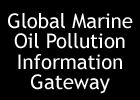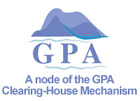|
|
|
Nairobi
Convention
The
objective of Convention for the Protection, Management and Development
of the Marine and Coastal Environment of the Eastern African
Region (Nairobi
Convention), which was adopted in 1985 and came into force
in 1996, is
to protect and manage the marine environment and coastal areas
of the Eastern African region. The Contracting Parties commit
themselves to take all appropriate measures to prevent, reduce
and combat pollution of the Convention area, particularly pollution
from ships, dumping, land-based sources, exploration and exploitation
of the sea bed, and airborne pollution. They also agree to protect
and preserve rare or fragile ecosystems as well as the habitat
of depleted, threatened or endangered species and other marine
life in specially protected areas. Furthermore, Parties agree
to cooperate in dealing with pollution emergencies in the Convention
area.
|
Indian
Ocean MoU on Port State Control
According
to the Indian
Ocean MoU on Port State Control, each Authority will establish
and maintain an effective system of Port State Control with
a view of ensuring that, without discrimination as to flag,
foreign merchant ships visiting the ports of its State comply
with the standards laid down in the relevant international instruments.
|
UNEP
Regional Office for Africa (ROA)
The
major function of the UNEP
Regional Office for Africa (ROA) is to coordinate UNEP's
programme of work in the region. ROA acts as the link between
the various units and centers of UNEP and the countries in the
region, and promotes collaboration and partnerships with organizations
active in sustainable development in Africa. ROA provides a
wide range of advisory services using either UNEP staff or consultants
through an umbrella project known as Regional Advisory Services
(RAS). RAS advises on environmental machinery and technical
requirements, reviews project proposals, and recommends action
by governments and other organizations. ROA covers all 53 countries
of the continent. |
African
Development Bank
The
African Development
Bank (ADB) is the premier financial development institution
of Africa, dedicated to combating poverty and improving the
lives of people of the continent and engaged in the task of
mobilising resources towards the economic and social progress
of its Regional Member Countries. The bank's Environment and
Sustainable Development Unit "is the focal point for addressing
and integrating the cross-cutting themes of environment, population,
gender, poverty reduction, NGO relations/local participation,
and institutional development into the bank's operations."
The bank's environmental
guidelines include coastal and marine resource management,
and fisheries. See also the bank's country
environmental profiles for its members. |
UN
Economic Commission for Africa (UNECA)
The
UN Economic Commission
for Africa (UNECA) is the regional arm of the United Nations,
mandated to support the economic and social development of its
53 member States, foster regional integration, and promote international
cooperation for Africa’s development. The Sustainable
Development Division (SDD) of UNECA plans and implements
a critical program to raise policy-makers’ awareness on
the urgency to integrate food, population and environmental
concerns in development planning and offers its member States
feasible solutions drawn from best practices within Africa and
around the world. The UNECA published the report State of the
Environment in Africa. |
Secretariat
for Eastern African Coastal Area Management
The
objective of the Secretariat for Eastern African Coastal Area
Management (SEACAM),
is to assist the Eastern African coastal countries to implement
and coordinate coastal management activities following up on
the 1993 Arusha Resolution and the 1996 Seychelles Statement
on Integrated Coastal Zone Management. The SEACAM Work Programme
includes a number of priority areas: Capacity building, particularly
of local NGOs; Database of CZM programs, projects and activities;
and institutions and individuals; Environmental assessment of
coastal aquaculture and coastal tourism; Public sector management;
and Sustainable financing of coastal management programmes.
|
GEF
International Waters projects
Addressing
Land-based Activities in the Western Indian Ocean:
This project has a primary focus on the degradation of the marine
and coastal environment due to land-based activities. Three
objectives have been identified: Reduce stress to the ecosystem
by improving water and sediment quality; Strengthen regional
legal basis for preventing land-based sources of pollution;
and Develop regional capacity and strengthen institutions for
sustainable, less polluting development. The project focus on
the Global Program for Action will result in National Plans
of Action for abating land-based sources, as well as a regional
protocol for the existing Environmental Convention (Nairobi
Convention) with Annexes. The project focus on broad stakeholder
participation will help assure the sustainability of the GPA
Plans of Action. |

|
|


